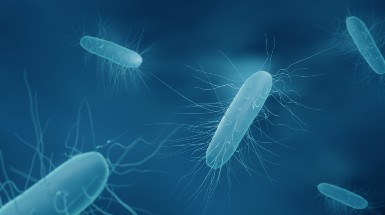NICE recommends transplant with good bacteria taken from poo to resolve recurrent Clostridium difficile infections - NICE

Hundreds of people with recurrent bacterial infections could be treated with gut bacteria taken from a healthy donor's poo.
NICE has recommended a faecal microbiota transplant (FMT) is offered to people who have been treated for two or more Clostridium difficile (C. diff) infections without success.
FMT treatment aims to restore a healthy population of gut bacteria and involves transferring gut bacteria and other microorganisms from healthy donor poo into the gut of the recipient.
Clinical trial evidence showed that FMT treatment is significantly better than antibiotics alone at resolving a C. diff infection in people who have had two or more previous infections.
C.diff is a bacterium that causes an infection if the balance of bacteria in the bowel changes, which leads to diarrhoea. Certain groups, such as older people, are at higher risk of C. diff infection. The infection most commonly affects people who are taking, or have recently taken, antibiotics, and can be transmitted very easily. It can range from mild, to life threatening, and is treated with antibiotics in the first instance.
Evidence presented to the NICE Medical Technology Advisory Committee shows the treatment could save the NHS hundreds – or in some cases thousands – of pounds, lead to fewer antibiotics being used, and give patients a better quality of life.
The intestinal bacteria can be delivered through a tube inserted directly into the stomach through the nose, or alternatively be deposited directly into the colon through a tube or swallowed via a pill.
The treatment should be manufactured in accordance with Medicines and Healthcare products Regulatory Agency guidance for human medicines regulation and a strict donor screening programme should be in place to establish risk factors for transmissible diseases and factors influencing the gut microbiota.
Mark Chapman, interim director of Medical Technology at NICE, said: "There is currently a need for an effective treatment of C. diff in people who have had two or more rounds of antibiotics.
"Our committee's recommendation of this innovative treatment will provide another tool for health professionals to use in the fight against this infection, while at the same time balancing the need to offer the best care with value for money.
"Use of this treatment will also help reduce the reliance on antibiotics and in turn reduce the chances of antimicrobial resistance, which supports NICE's guidance on good antimicrobial stewardship."
Clinical evidence from five randomised controlled trials of 274 adults showed that more C. diff infections were resolved with FMT than antibiotic treatment in four of the trials and there was no difference in the other. FMT can lead to different levels of clinical cure depending on how the treatment is given but it could resolve up to 94% of infections.
Modelling shows that FMT treatment is cheaper than treatment with almost all antibiotics. It saves £769 compared with vancomycin taper pulse (VTP) if FMT is given using colonoscopy. And saves £8,297 compared with vancomycin if it's given using an oral capsule.
This assumes FMT costs £1,300 for 50 ml, and that a quarter of people having antibiotics alone are treated in the community (outside hospital). FMT is not cost saving compared with VTP if it's given using an enema – this costs £1,287 per person more.



Comments
Post a Comment